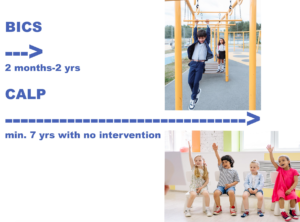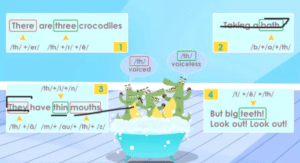
Advice for ESL Teachers on Stopping Work with a Student
No one likes to say goodbye (usually) and to stop teaching a regular student.
Having said that, I once had an extremely difficult Cambly student who was abrasive and miserable in every class. Yet, she continued booking me nonstop and left good reviews.
After a few months of this, she opened up during class and thanked me for putting up with her. She said she suffered from clinical depression, and scheduling daily English classes with me kept her going until her meds kicked in. The classes forced her to interact with someone. She was so grateful I had dealt with her attitude for so long, and she was a pleasant student after this!
So, it is certainly not your job to be an emotional caretaker, but you might want to give a student a break if you can. Of course, only do this if your rating score isn’t tanking. We are all human, after all.
Having said that, here are some tips to help you know when to say goodbye and how to do it gracefully.
If it’s emotionally too overwhelming for you
If you can’t handle writing that final goodbye email, outsource it to AI. Just have Chatgpt do it. Or, use templates readily found online and edit them to personalize them.
End it: how to stop teaching a student
- Be Clear about Expectations
From the beginning of your working relationship with a student, it is important to set clear expectations. This includes outlining what you expect from the student regarding attendance, participation, and progress. If the student is not meeting these expectations, it may be time to reassess the situation.
- Keep an Open Dialogue
If you notice that the student is not meeting your expectations, having an open dialogue with them is important. Schedule a meeting to discuss your concerns and allow them to express themselves. Sometimes, there may be underlying issues causing the student’s lack of progress, and you may be able to find a solution together.
- Be Honest and Professional
If, after trying to work through the issues, you still feel that it is necessary to stop working with the student, it is important to be honest and professional. Schedule a meeting with the student to explain your decision. Provide specific reasons for why you believe it is the best course of action. It is important to be clear, respectful, and empathetic in your delivery. Say goodbye with love.
- Offer Resources and Recommendations
As an ESL teacher, you are likely to have a network of colleagues and resources that can help the student continue their language learning journey. Offer to provide recommendations for other teachers, language schools, or resources that may better fit the student’s needs.
- Follow Up
After ending your working relationship with a student, it is important to follow up with them. This can include sending an email to wish them the best of luck or offering a reference. While you may no longer be working with the student, you can still show your support and commitment to their language learning journey.
Final Thoughts
Ending a working relationship with a student is never an easy decision, but it is sometimes necessary for both parties to move forward. By setting clear expectations, maintaining an open dialogue, being honest and professional, offering resources and recommendations, and following up, you can make the process as smooth and positive as possible. Remember, as an ESL teacher, your ultimate goal is to help your students succeed, and sometimes that means knowing when to say goodbye.
If this interests you, check out these posts.
Saying Goodbye to a Student You Like: Advice for ESL Teachers
Best online English teaching jobs in 2023












